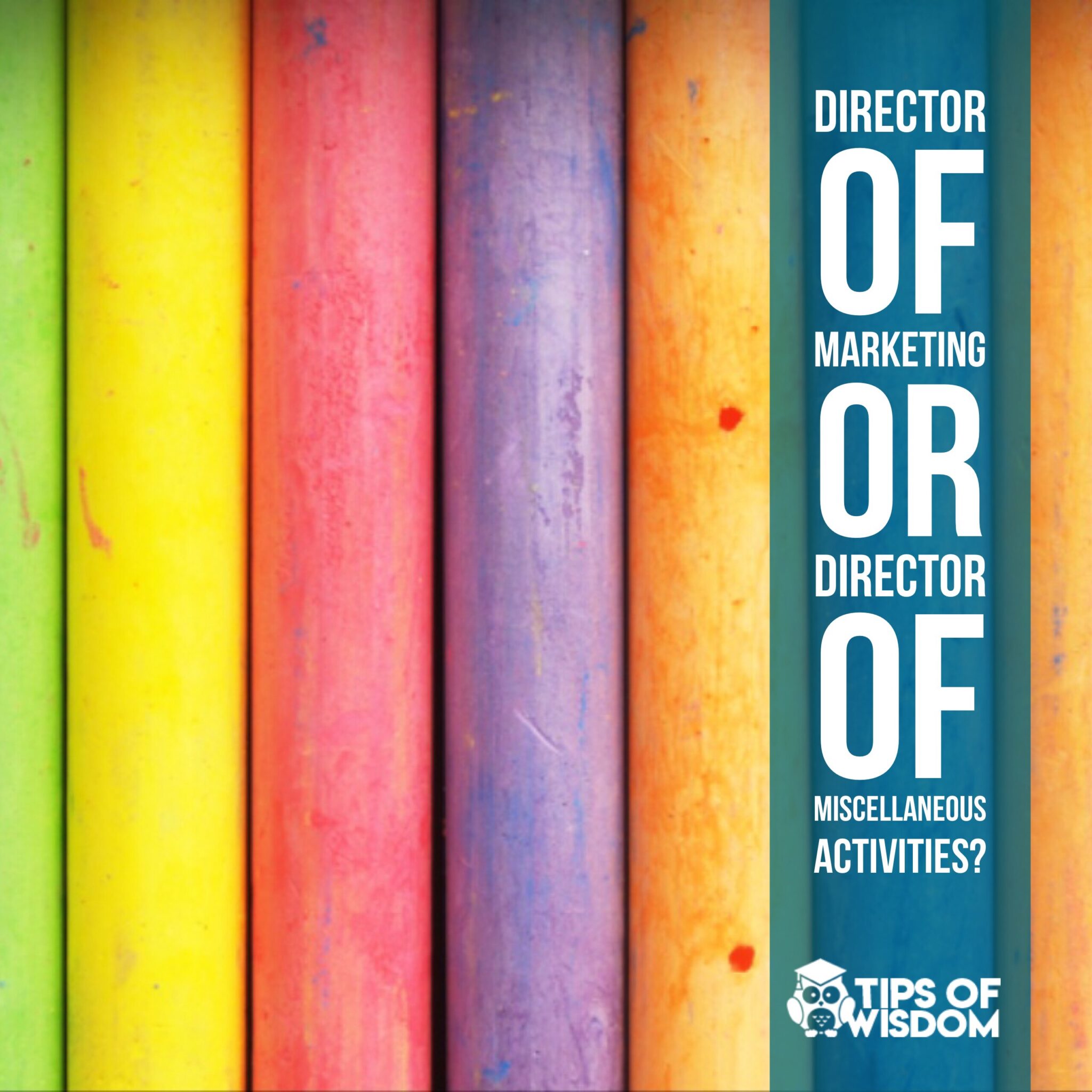When I took my first job as a “Director of Marketing”, I had two years of experience under my belt coordinating mail-outs, graphics, and tradeshows. That was my narrow view of “Marketing” at the time.
Since then, I have come to learn that marketing is truly at the heart of a company’s operations. Every employee you have is a brand ambassador, interacting with and talking to people about your company on a daily basis. Their actions and words build your culture and write your story in ways a simple brochure, advertisement, or drip letter can only dream of doing.
Over the course of my career, I have discovered that marketing is truly the “miscellaneous” department. The department that touches every other department in a quest to grow a story that clients and prospects alike are proud to share. Marketing is the department others turn to when they are stuck trying to overcome a problem in their department because Marketing is the only department truly responsible for understanding and shaping every step in the buyer’s journey.
Land & Expand
Therefore, Marketing is not only responsible for landing new business, but the department is also responsible for figuring out how to expand that business.
Smart marketing departments invest in customer advocacy to help ensure their clients are telling their stories. One way they do this is by developing co-branded quality content with their customers. This might include in-depth case studies, training videos, or ebooks featuring clients who have successfully utilized their services.
Marketing leadership, therefore, should not only be held accountable for “lead generation” but should also be held accountable for “closed deals” and “client retention rates”.
Product Usage Depends on 4 Leaders
No matter what product or service you are selling, Operations, Marketing, Sales, and Client Services must all be on the same page. All four leaders should be looking at client usage numbers on a daily basis and discussing those trends weekly.
During weekly meetings, these leaders should be asking:
- Are our customers using our product/service for this and not using it for this?
- Why are our best customers staying?
Analyzing the answers to these two questions together on a weekly basis not only ensures all departments are aware of what is going on within the company, it also ensures they are on the same page about how to address change and innovation in the company.
So the next time someone comes to you and asks you, “What does your marketing department do?”, you might consider answering with a slightly different answer. Marketing is no longer simply relegated to the role of generating leads. Marketing is truly the department responsible for helping shape all of the miscellaneous functions of a company in an effort to deliver the best possible brand experience at every step along the buyer’s journey.
Save to Pinterest


